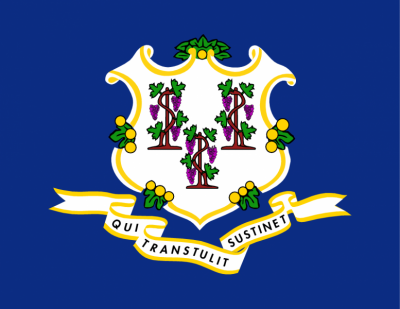Connecticut

Connecticut recognizes the invasion of privacy, and the tort of appropriation of name or likeness. It is an open question whether the state also recognizes a distinct right of publicity and whether such a right would be descendible. Federal courts have held that the state would recognize a right of publicity, and concluded that the right would be synonymous with the tort of appropriation.
Statute
NO
Common Law - Right of Publicity
Likely Yes
Although state courts have not specifically ruled on the question, the Second Circuit Court of Appeals has concluded that the state would recognize a right of publicity, but also that the right is entirely synonymous with the tort of appropriation, as expressed in the Second Restatement of Torts.
Jackson v. Roberts, No. 19-480 (2d Cir. Aug. 19, 2020)
Jim Henson Productions, Inc. v. John T. Brady & Assocs., 867 F. Supp. 175 (S.D.N.Y. 1994)
Common Law - Right of Privacy-Appropriation Tort
YES
The state recognizes both a right to privacy and the appropriation branch of that tort as articulated by the Restatement (Second) of Torts § 652.
Goodrich v. Waterbury Republican-American, Inc., 488 A.2d 1317 (Conn. 1982)
Venturi v. Savitt, Inc., 468 A.2d 993 (Conn. 1983)
Post-Mortem Right
UNCLEAR
A federal district court held that Connecticut law would recognize an independent property-based right of publicity and that such a right would survive death. A more recent decision by another federal courts, this time the Second Circuit indicated that Connecticut’s right of publicity is synonymous with the Restatement of Torts‘ appropriation tort. If this is view is followed it may suggest that the rights do not survive death, but the court did not specifically address that question.
Jim Henson Productions, Inc. v. John T. Brady & Assocs., 867 F. Supp. 175 (S.D.N.Y. 1994)
Jackson v. Roberts, No. 19-480 (2d Cir. Aug. 19, 2020)
Limits on Right
Does the law require the plaintiff or identity-holder to be a celebrity or have a commercially valuable identity?
NO
Goodrich v. Waterbury Republican-American, Inc., 448 A.2d. 1317 (Conn. 1983)
Herring v. Radding Signs, No. CV99-0427523 (Conn. Super. Ct. 2000)
Amie Morse v. Conn. Cmty. for Addiction Recovery, 2010 WL 4074949 (Conn. Sup. Ct. 2010)
Jackson v. Roberts, No. 19-480 (2d Cir. Aug. 19, 2020)
Does the law protect persona?
No case has considered the issue.
Is Liability Limited to Uses on Commercial Advertising or Commercial Speech?
NO
Although no case has specifically addressed the question, the state’s reliance on the Restatement (Second) of Torts indicates that the right would not be so limited. A recent federal appellate decision applying Connecticut law also agrees on this point.
Jackson v. Roberts, No. 19-480 (2d Cir. Aug. 19, 2020)
First Amendment Analysis
To date no Connecticut court has considered a unique test for balancing First Amendment and right of publicity interests. However, Connecticut sits in the Second Circuit Court of Appeals, which considered a First Amendment defense to a right of publicity claim under Oregon law and concluded that, at least in the context of expressive works, uses of others’ names are protected by the First Amendment unless the use is “wholly unrelated” or “simply a disguised commercial advertisement for the sale of goods or services.” A more recent decision by this federal appellate court suggests that, at least when the use of copyrighted works are at issue, there must be some doctrine akin to fair use that is applied.
Rogers v. Grimaldi, 875 F.2d 994, 1004 (2d Cir. 1989).
Jackson v. Roberts, No. 19-480 (2d Cir. Aug. 19, 2020)
Other Commentary
The Second Circuit has analyzed the preemption of the right of publicity by copyright law in the context of applying Connecticut right of publicity law. It concluded that evaluations of copyright preemption should begin with considering implied preemption, as well as the express preemption provision of the Copyright Act (Section 301).
Jackson v. Roberts, No. 19-480 (2d Cir. Aug. 19, 2020)
